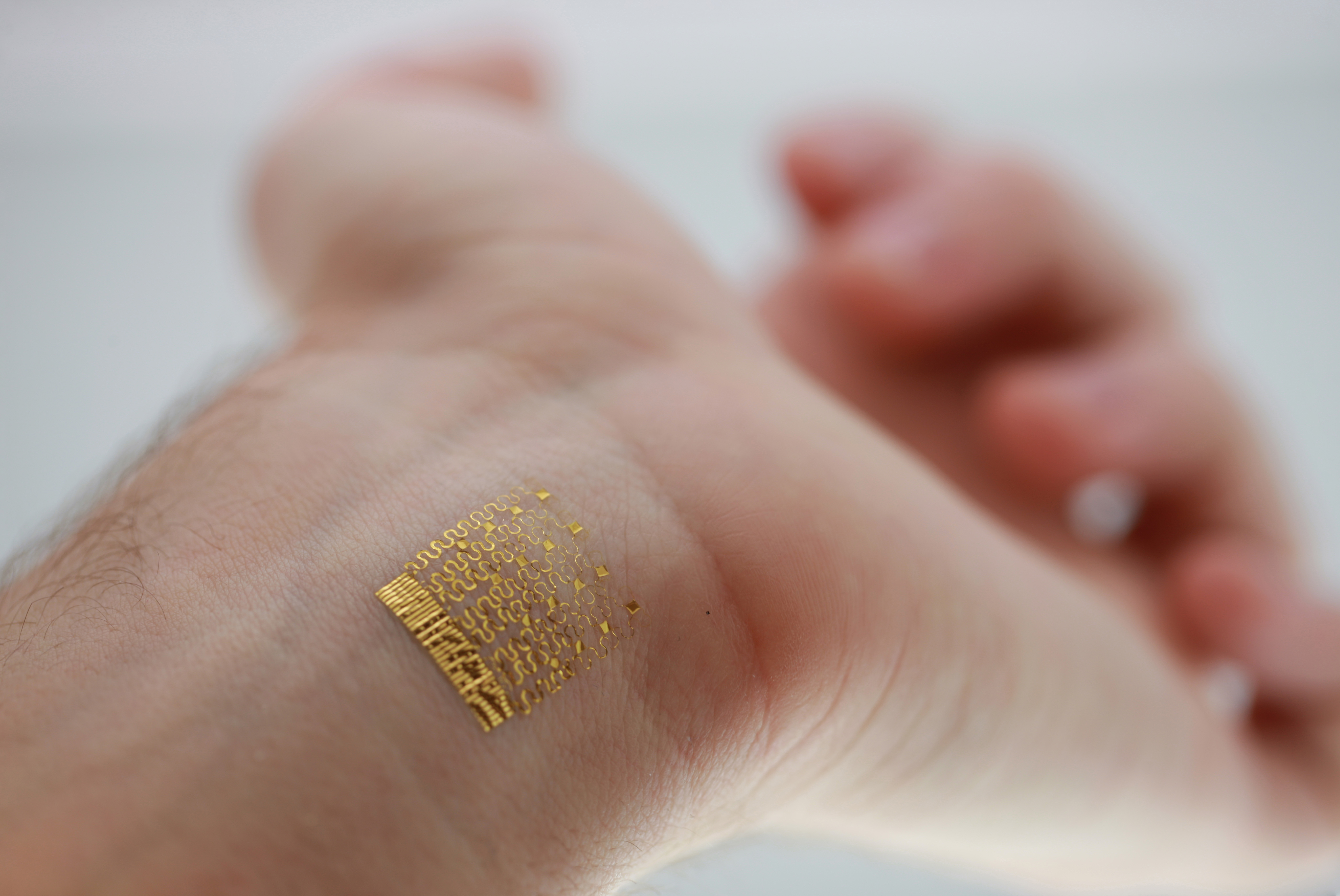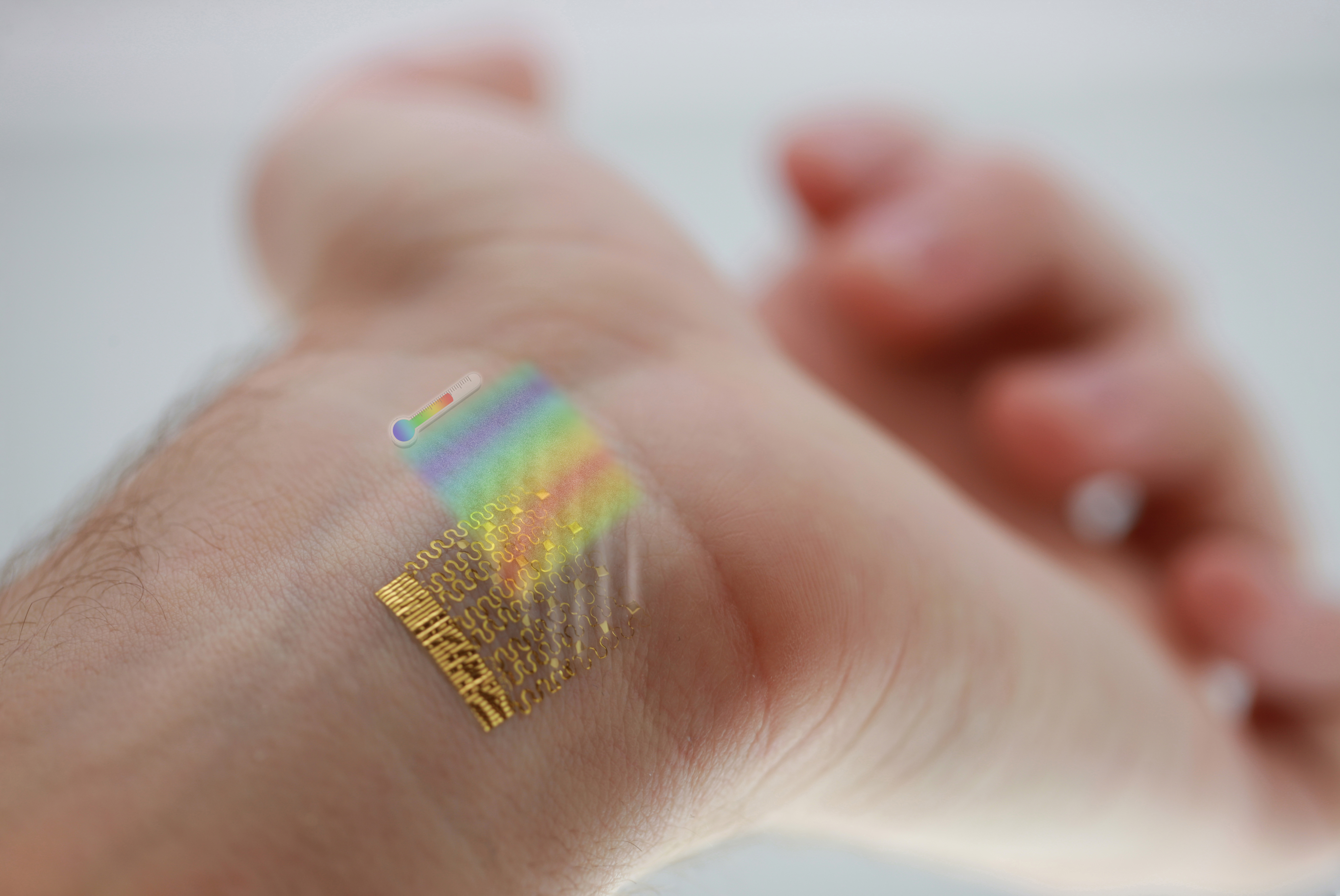New Thermometers Stick Like Temporary Tattoo

Using new wearable electronics as light and thin as temporary tattoos, scientists can now take a person's temperature and monitor not only their health but also their mental state.
Taking a person's temperature can reveal more than a fever. For instance, analyzing tiny, regular variations in body temperature can reveal how blood vessels are constricting and dilating, which is linked to cardiovascular health. Monitoring changes in temperature can even shed light on a person's mental state.
The best existing technologies for measuring skin temperature include simple, paste-on sensors and sophisticated infrared cameras. Although paste-on sensors are cheap and help doctors monitor patients as they move freely, these devices cannot monitor changes in great detail, across the skin. Moreover, they irritate the skin, changing its natural responses. While infrared cameras enable high-precision temperature measurements in high detail across the skin, they are expensive, and require patients to keep still.
Now materials scientist John Rogers at the University of Illinois at Urbana-Champaign and his colleagues have developed wearable, flexible thermometers only 50 microns wide, or about half the width of the average human hair. [Image of the wearable thermometer]
"A very low cost, simple device that is capable of integration onto the skin like a kid's temporary tattoo can offer precision in thermal measurement on the skin that approaches that of a $250,000 infrared camera," Rogers told LiveScience.
The sensors are made of either thin wavy gold wires, or silicon membranes mounted on an ultra-thin rubbery sheet that is perforated to help the skin breathe and behave naturally. They can stick onto human skin and measure temperatures down to thousandths of a degree. The prototypes could gather clinically useful data such as blood flow and how well the skin was hydrated with extremely high sensitivity.
The sensors could also behave as heaters if desired, Rogers said. Precisely controlled levels of heating of the skin could have therapeutic use — for instance, it could assist delivery of drugs into the blood, or help the body absorb nutrients critical to healing a wound rapidly, and with a lower risk of infection.
Get the world’s most fascinating discoveries delivered straight to your inbox.
Currently, the scientists read data off these sensors by placing an electrode against the devices. In the future, the researchers hope to develop thermometers that can wirelessly broadcast their findings.
The scientists detailed their findings online Sept. 15 in the journal Nature Materials.
Follow LiveScience @livescience, Facebook & Google+. Original article on Live Science.

 Live Science Plus
Live Science Plus






